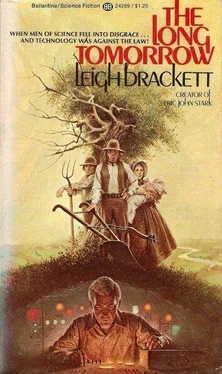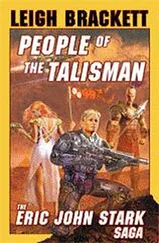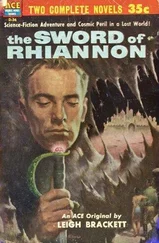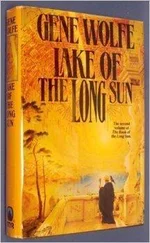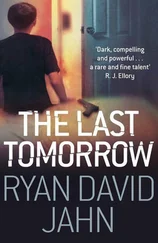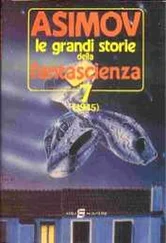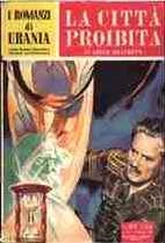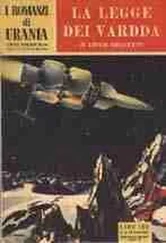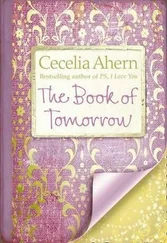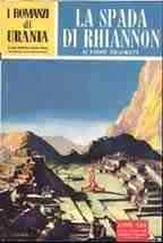Esau leaned out of the cart and shouted hysterically at Len. “Don’t give up. They can’t make you stop thinking. No matter what they do to you they can’t—”
Uncle David turned the cart sharp around and brought it into the farmyard.
“We’ll see about that,” he said “Elijah, I’m going to use your barn.”
Pa frowned, but he did not say anything. Uncle David went across to the barn, shoving Esau roughly in front of him. Ma came running out of the house. Uncle David called out, “You bring Len. I want him here.” Pa frowned again and then said, “All right.” He put out his hands to Ma and drew her aside and said a few words to her, very low, shaking his head. Ma looked at Len. “Oh no,” she said. “Oh Lennie, how could you!” Then she went back to the house with her apron up over her face, and Len knew that she was crying. Pa pointed to the barn. His lips were set tight together. Len thought that Pa did not like what Uncle David was going to do, but that he did not feel he could question it.
Len did not like it either. He would rather have had this just between himself and Pa. But that was like Uncle David. He always figured if you were a kid you had no more rights or feelings than any other possession around the farm. Len shrank from going into the barn.
Pa pointed again, and he went.
It was dark now, but there was a lantern burning inside. Uncle David had taken the harness leather down off the wall. Esau was facing him, in the wide space between the rows of empty stanchions.
“Get down on your knees,” said Uncle David.
“No.”
“Get down!” And the harness strap cracked.
Esau made a noise between a whimper and a curse. He went down on his knees.
“Thou shalt not steal,” said Uncle David. “You’ve made me the father of a thief. Thou shalt not bear false witness. You’ve made me the father of a liar.” His arm was rising and falling in cadence with his words, so that every pause was punctuated by a sharp whuk! of flat leather against Esau’s shoulders. “You know what it says in the Book, Esau. He who loveth his child chasteneth him, but he who hateth his son withholdeth the rod. I’m not going to withhold it.”
Esau was not able to keep silent any longer. Len turned his back.
After a while Uncle David stopped, breathing hard. “You defied me a bit ago. You said I couldn’t make you change your mind. Do you still feel that way?”
Crouched on the floor, Esau screamed at his father. “Yes!”
“You still think you’ll go to Bartorstown?”
“Yes!”
“Well,” said Uncle David. “We’ll see.”
Len tried not to listen. It seemed to go on and on.
Once Pa stepped forward and said, “David—” But
Uncle David only said, “Tend to your own whelp, Elijah. I always told you you were too soft with him.” He turned again to Esau. “Have you changed your mind yet?”
Esau’s answer was unintelligible but abject in surrender.
“You,” said Uncle David suddenly to Len, and jerked him around. “Look at that, and see what boasting and insolence come to in the end.”
Esau was groveling on the barn floor, in the dust and straw. Uncle David stirred him with his foot.
“Do you still think you’ll go to Bartorstown?”
Esau muttered and moaned, hiding his face in his arms. Len tried to pull away but Uncle David held him, with a hot heavy hand. He smelled of sweat and anger. “There’s your hero,” he said to Len. “Remember him when your turn comes.”
“Let me go,” Len whispered. Uncle David laughed. He pushed Len away and handed Pa the harness strap. Then he reached down and got Esau by the neckband of his shirt and pulled him up onto his feet.
“Say it, Esau. Say it out.”
Esau sobbed like a little child. “I repent,” he said. “I repent.”
“Bartorstown,” said Uncle David, in the same tone in which Nahum must have pronounced the bloody city. “Get out. Get home and meditate on your sins. Good night, Elijah, and remember—your boy is as guilty as mine.”
They went out into the darkness. A minute later Len heard the cart drive off.
Pa sighed. His face looked tired and sad, and deeply angry in a way that was much more frightening than Uncle David’s raging. He said slowly, “I trusted you, Len. You betrayed me.”
“I didn’t mean to.”
“But you did.”
“Yes.”
“Why, Len? You knew those things were wrong. Why did you do them?”
Len cried, “Because I couldn’t help it. I want to learn, I want to know!”
Pa took off his hat and rolled up his sleeve. “I could preach a long sermon on that text,” he said. “But I’ve already done that, and it was breath wasted. You remember what I told you, Len.”
“Yes, Pa.” And he set his jaw and curled his two hands up tight.
“I’m sorry,” said Pa. “I didn’t ever want to have to do this. But I’m going to purge you of your pride, Len, just as Esau was purged.”
Inside himself Len said fiercely, No, you won’t, you won’t make me get down and crawl. I’m not going to give them up, Bartorstown and books and knowing and all the things there are in the world outside of Piper’s Run!
But he did. In the dust and straw of the barn he gave them up, and his pride with them. And that was the end of his childhood.
He had slept for a while, a black heavy sleep, and then he had waked again to stare at the darkness, and feel, and think. His body hurt, not with the mere familiar smart of a licking but in a serious way that he would not forget in a hurry. It did not hurt anything like as much as the intangible parts of him, and he lay and wrestled with the agony in the little lopsided room under the eaves that was still stifling from the day’s sun. It was almost dawn before anything stood clear from the blind fury of grief and rage and resentment and utter shame that shook around in him like big winds in a small place. Then, perhaps because he was too exhausted to be violent any more, he began to see a thing or two, and understand.
He knew that when he had groveled in Esau’s tracks in the dust and forsworn himself, he had lied. He was not going to give up Bartorstown. He could not give it up without giving up the most important part of himself. He did not know quite what that most important part was, but he knew it was there, and he knew that nobody, not even Pa, had the right to lay hands on it. Good or bad, righteous or sinful, it lay beyond whim or attitude or passing play. It was himself, Len Colter, the individual, unique. He could not forswear it and live.
When he understood that, he slept again, quietly, and woke with a salt taste of tears in his mouth to see the window clear and bright and the sun just coming up. The air was full of sound, the screaming of jays and the harsh call of a pheasant in the hedgerow, the piping and chirping of innumerable birds. Len looked out, past the lightning-blasted stub of a giant maple with one indomitable spray of green still sprouting from its side, over the henhouse roof and the home field with the winter wheat ripening on it, to the rough hill slope and the upper wood rising to a crest on which were three dark pines. And a dull sadness came over him, because he was looking at it for the last time. He did not arrive at that decision by any conscious line of reasoning. He only knew it, immediately he waked.
He rose and went stiffly about his chores, white and remote, speaking only when he was spoken to, avoiding people’s eyes. With rough kindness, Brother James told him, out of Pa’s earshot, to buck up. “It’s for your own good, Lennie, and someday you’ll look back and be thankful you were caught in time. After all, it’s not the end of the world.”
Читать дальше
